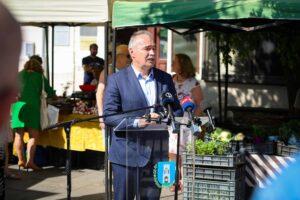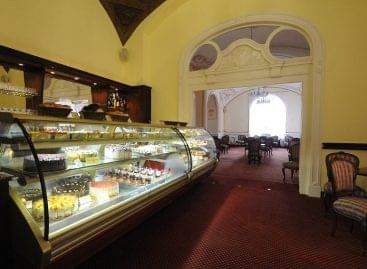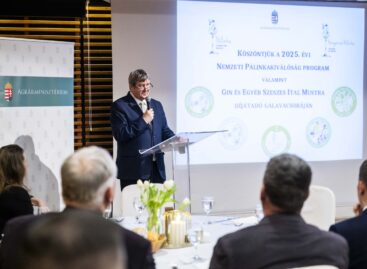István Nagy: the government’s focus is on preserving the rural way of life
István Nagy emphasized in his speech at the producers’ and artisans’ fair held on Búza tér: it is possible to build on traditional ways of life.

(Minister of Agriculture István Nagy – photo: István Fekete)
Today, the market is much more like an agora, a community space, this plus gives it its value, the producer and the buyer can meet, it is possible to build trust – said the head of the agricultural ministry. He added: local governments can apply for one hundred million forints for market development in order to make the market truly modern, so that product and culture can coexist. We can give HUF 5.5-6 million to those small producers who are willing to cultivate their garden and maintain it for 5 years – added the head of the agricultural ministry. He talked about the fact that 10-15 years ago, no one thought that the Hungarian farm, the Hungarian village, had a future. Today, 65 percent of the people living on the farm were not born there, but recently moved there. They are the ones who revolutionized Hungarian gastronomy, we can thank them for handicraft products, they brought fruit processing back into vogue, landscape varieties appeared – he said. The market, which also plays a major role in food security, must be fashioned; the product sold here has a much smaller ecological footprint than the goods coming from distant countries – the minister pointed out. He added: the market is a sustaining force in a world that is losing its identity very quickly, the customer gets such quality, freshness and diversity in the markets that he cannot get in the consumer culture.
City and countryside are in balance
Péter Hoppál, the ministerial commissioner responsible for priority cultural affairs of the Ministry of Culture and Innovation, spoke about how the balance between the city and the countryside has been restored in the last ten years.
In Pécs, at the Búza and Kossuth tér markets, the goods go directly from the producer to the consumer, and not through supermarkets, he pointed out. He said that the European Union apparently does not support rural life, which is why the Hungarian government had to create the Hungarian village program with national funds. The balance between the capital and the countryside must be preserved, as well as peace and security in the face of war efforts, he emphasized.
Farmers’ markets received support
László Őri, the chairman of the Baranya County Assembly, explained: In Baranya, farmers’ markets were set up in 8 locations for HUF 2.3 billion from county development funds, this was supplemented by rural development funds, from which other such markets were created.
He highlighted: A new market hall was built in Pécs with the support of the government. On Búza Square, in 2012, Pécs’ leadership at the time managed to bring back the traditions of farmers’ markets to the city, whose current, left-wing leadership does not consider it important to support the farmers’ market, he noted. Zsuzsanna Őri, the area manager of the Hungarian National Rural Network, said, among other things, that the Búza tér market is not only a source of purchases, but also a community space where there is an opportunity for personal relationships.
MTI
Related news
The Hungarian Food Book is 50 years old
🎧 Hallgasd a cikket: Lejátszás Szünet Folytatás Leállítás Nyelv: Auto…
Read more >Related news
EY Businessman of the Year: Tibor Veres is the grand prize winner, six special awards were also given out
🎧 Hallgasd a cikket: Lejátszás Szünet Folytatás Leállítás Nyelv: Auto…
Read more >Nestlé to sell remaining ice-cream assets but commits to Froneri venture
🎧 Hallgasd a cikket: Lejátszás Szünet Folytatás Leállítás Nyelv: Auto…
Read more >







